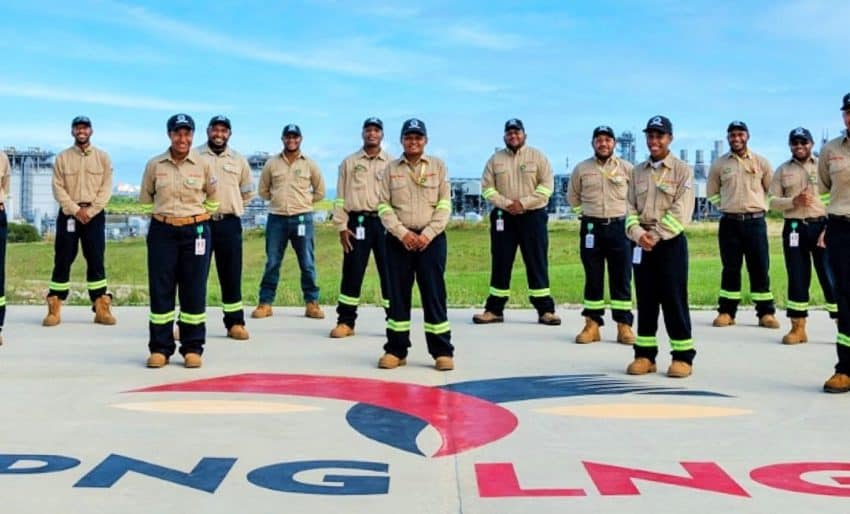A US$10 billion LNG project in Papua New Guinea will have a transformative effect on the impoverished Pacific nation, as well as supply Asia’s growing demand for energy, the developers say.
TotalEnergies, Santos and ExxonMobil this week moved to accelerate the development of the project that, should it go ahead, would become PNG’s second LNG project.
The development has had a series of false dawns since gas was first discovered in the country’s gulf province in 2006, but Julien Pouget, TotalEnergies head of exploration and production in the Asia-Pacific, said the consortium was fully committed to PNG.
“Papua New Guinea is in the perfect position to service the Asian market. We see the need for more gas in the Asian market going forward, driven by energy security and the transition to displace coal. We both believe that this project can be a key contributor to the economic development of Papua New Guinea,” Pouget told AFR.
“We are not making promises that we cannot fulfil. We are working with the communities to understand their needs and understand how we can contribute. We focus on actions that will benefit in the long term.”
A final investment decision on whether to proceed with the 6 million tonnes-a-year project is expected by early next year once the developers complete full engineering and design work on the project.
While the backers insist they have yet to reach the final milestone, PNG Prime Minister James Marape does not hide his confidence.
“Our country will have two LNG projects, running side by side,” he said in a speech in Port Moresby. “It secures significant revenue for at least 30 or 40 years.”
The increased revenue that PNG hopes to obtain is much needed. Much of the country’s population lives below the poverty line despite being rich in natural resources such as natural gas, oil and copper.
For Marape, the victory is also a vindication of his signature policy platform, maximising returns from resource projects.
Marape won power back in 2019, and he immediately put some of the world’s biggest resources companies on notice over a perceived lack of wealth flowing from their projects back to communities.
“This is a result of our government’s active pursuit of optimising what we can get from what was already signed,” Marape said.
The PNG government will take a 22.5 per cent stake in Papua LNG, higher than the 19.6 per cent held in the country’s sole other development, PNG LNG. Under the terms of the gas agreement with the government, Papua LNG would also make five percent of its gas available for the domestic market, helping ensure energy security.
Although it has the support of the PNG government, TotalEnergies is moving aggressively to ensure it has the social licence to develop.
It has confirmed the use of four electric LNG trains to process gas at the project. The use of revolutionary new technology for processing gas will ensure lower emissions and better efficiency.
TotalEnergies was also committed to a net gain in biodiversity, by planting more trees than are removed for the project, while local communities will receive social and economic benefits and landowners will be compensated. It is also a major donor to local communities, assisting locals with desperately needed medical and education services.
Located nearly 100 kilometres from the nearest town, the Kapuna Rural Health Centre can only be reached via river systems but serves tens of thousands of locals.
In 2021, Kapuna had a complete upgrade, with TotalEnergies providing logistics support in transporting construction materials to the project site. “This is one of the most important services to the people,” said Paul Burba, chairman of the association managing the hospital. “They travel for hours, sometime they travel for days to come. It is vital for the people.”

2 Responses
Comments are closed.